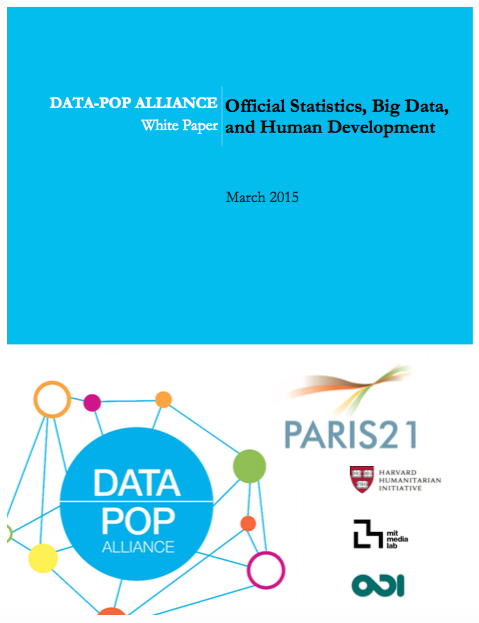This White Paper was written by Johannes Jütting and Emmanuel Letouzé, in collaboration with PARIS21.
The White Paper aims to contribute to the ongoing and future debate about the relationships between Big Data, official statistics and development—primarily by revisiting and reframing the terms and parameters of this debate.
Most current discussions on Big Data mainly focus on if and how it can contribute to producing faster, cheaper, more frequent and different development indicators for better policies. This paper takes a different starting point. It emphasizes the fundamental political nature of the debate, encouraging us to go and think beyond issues of measurement and stressing the centrality of politics beyond policy.
The paper argues that, in fact, Big Data needs to be seen as an entirely new ecosystem comprising new data, new tools and methods, and new actors motivated by their own incentives, and should stir serious strategic rethinking and rewiring on the part of the official statistical community.

